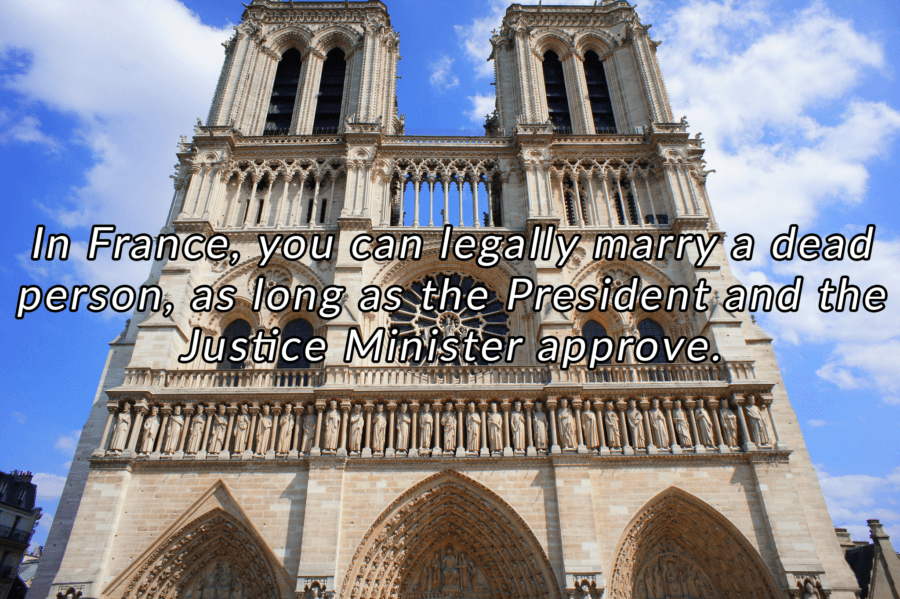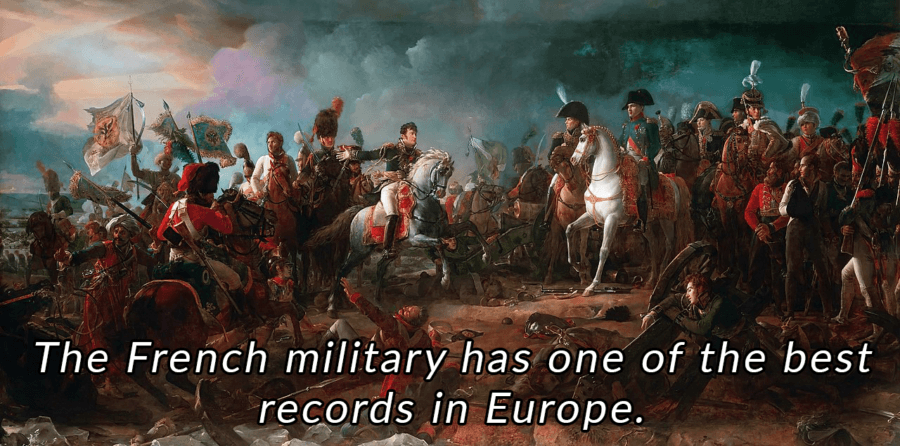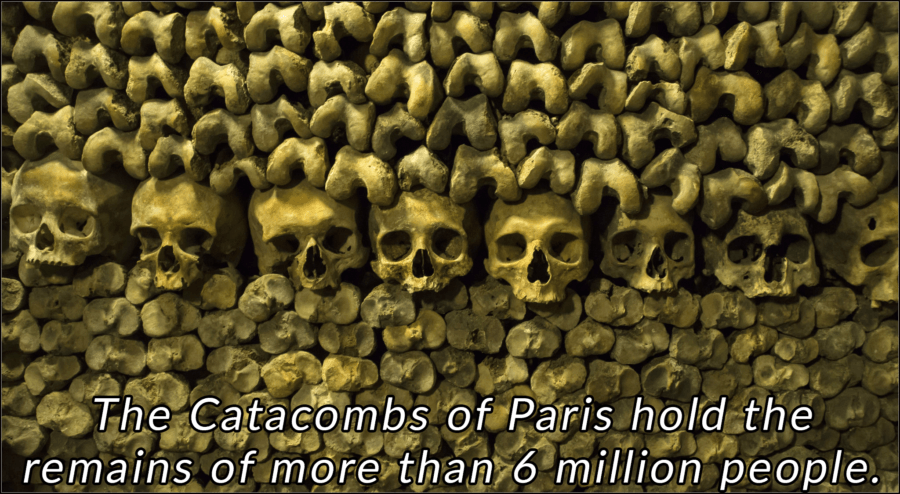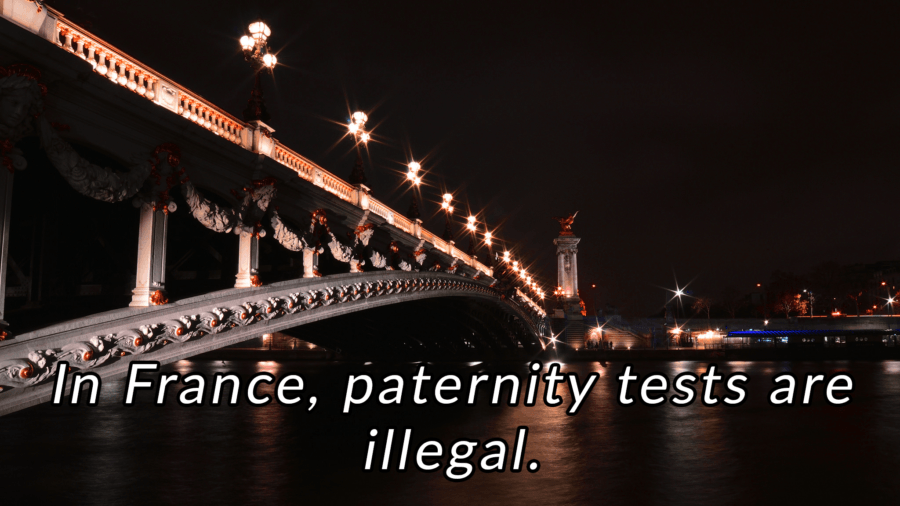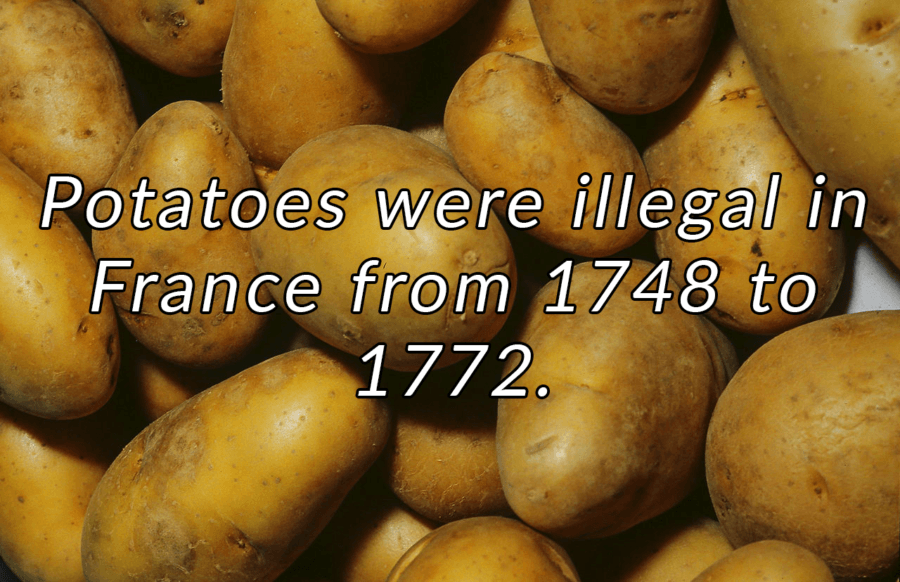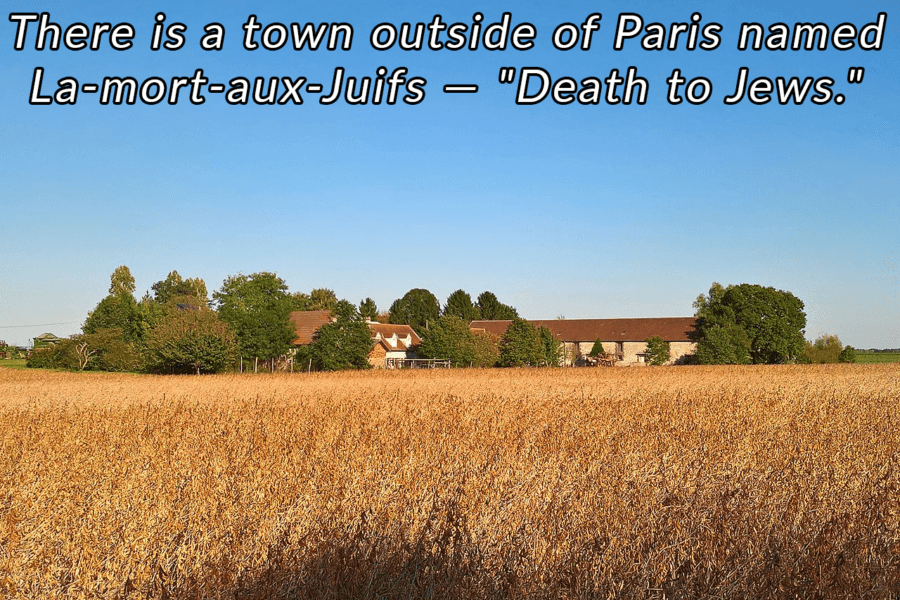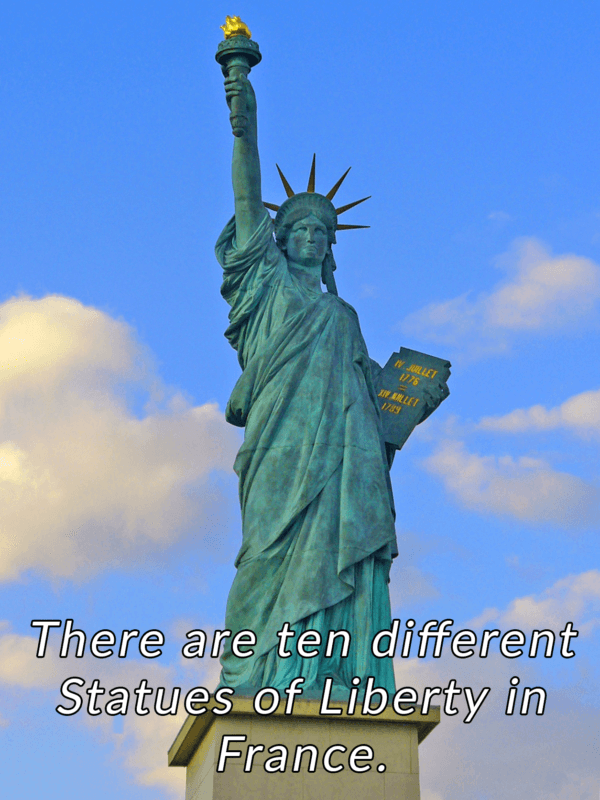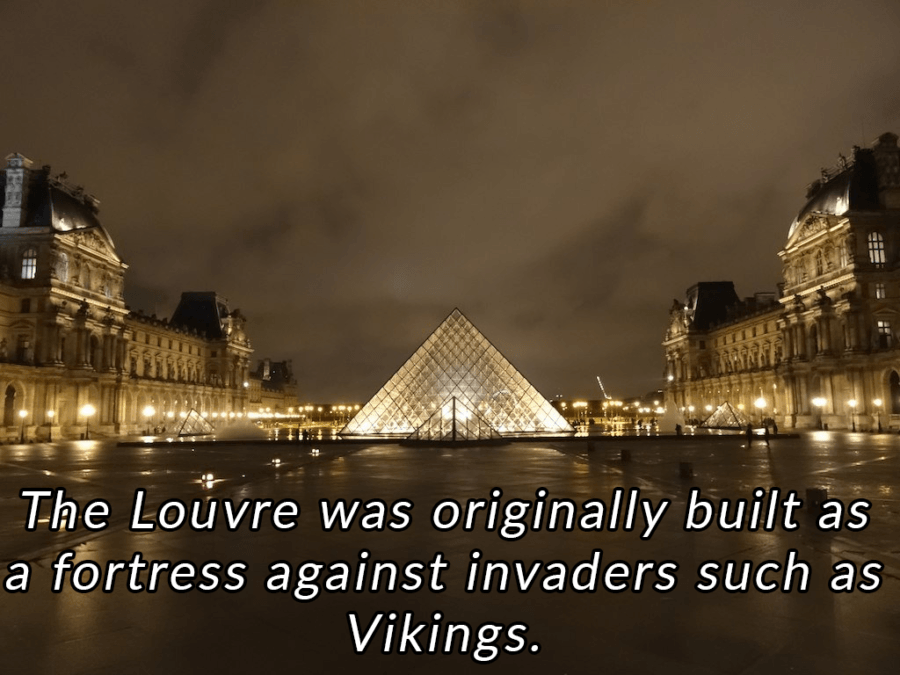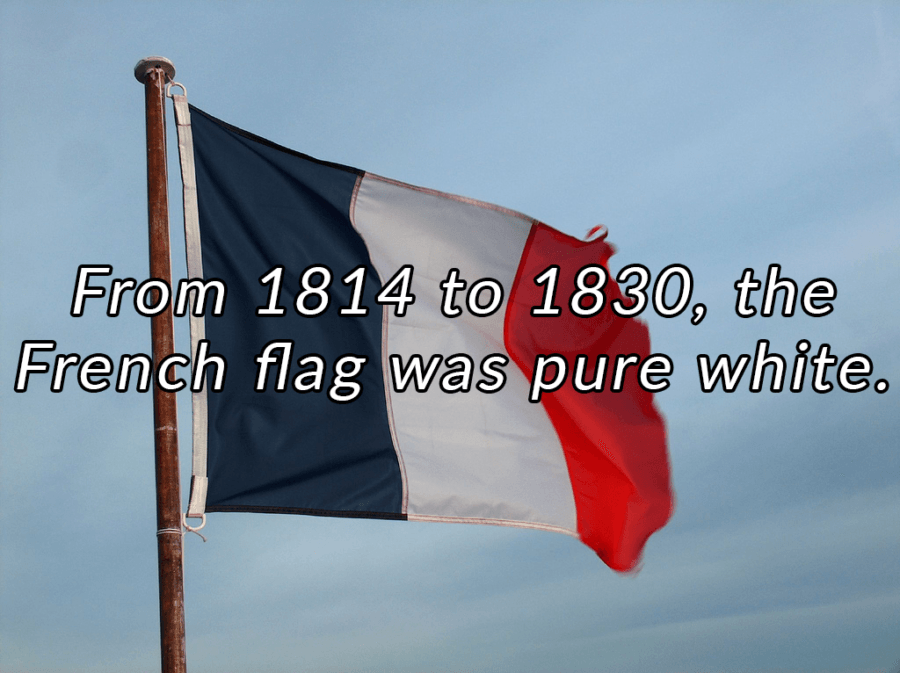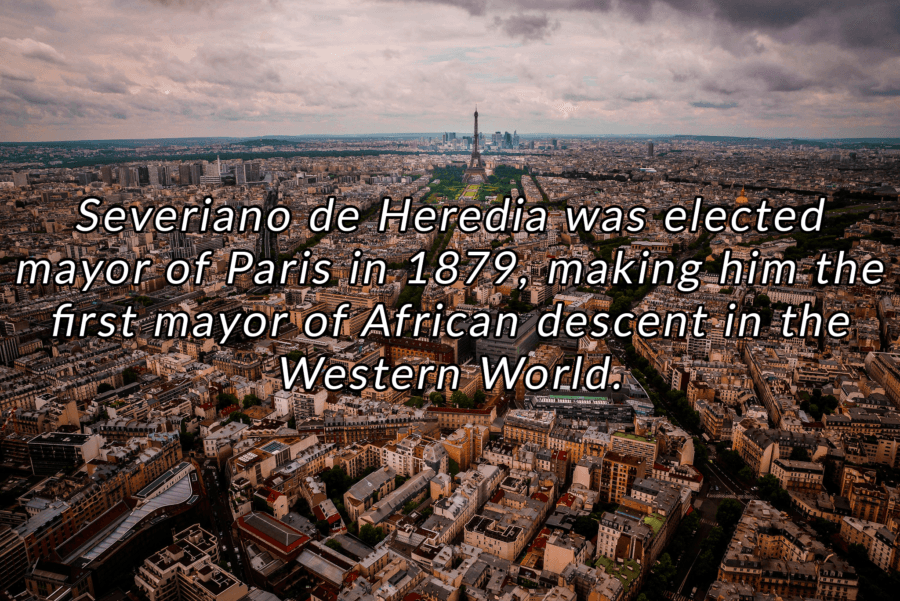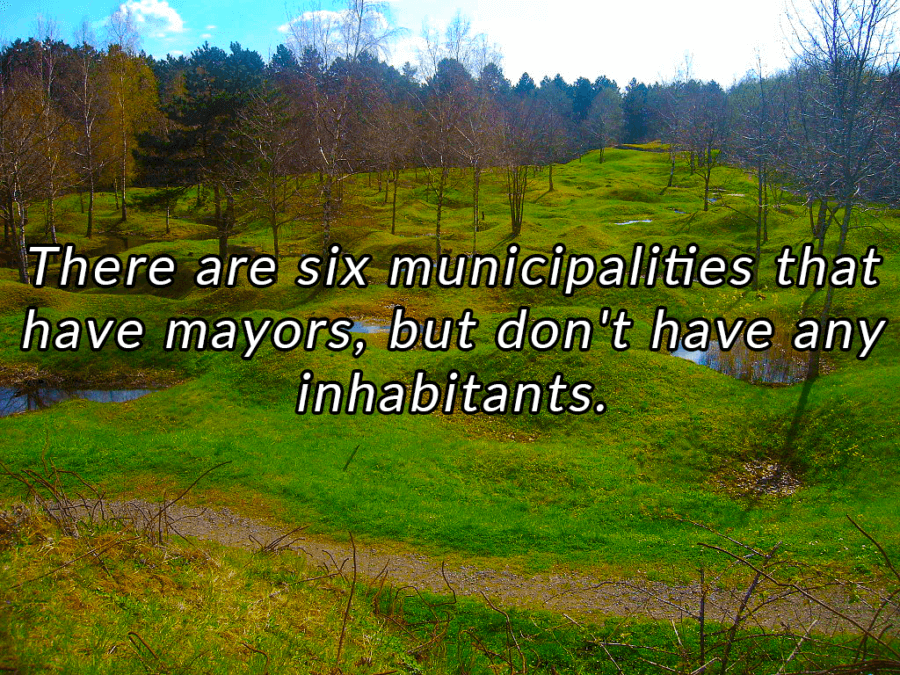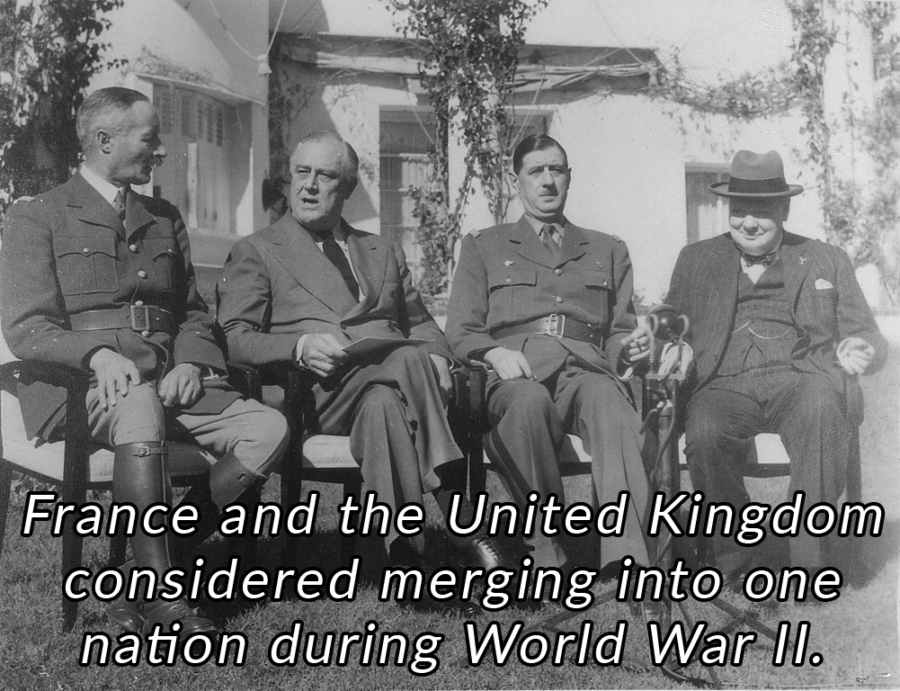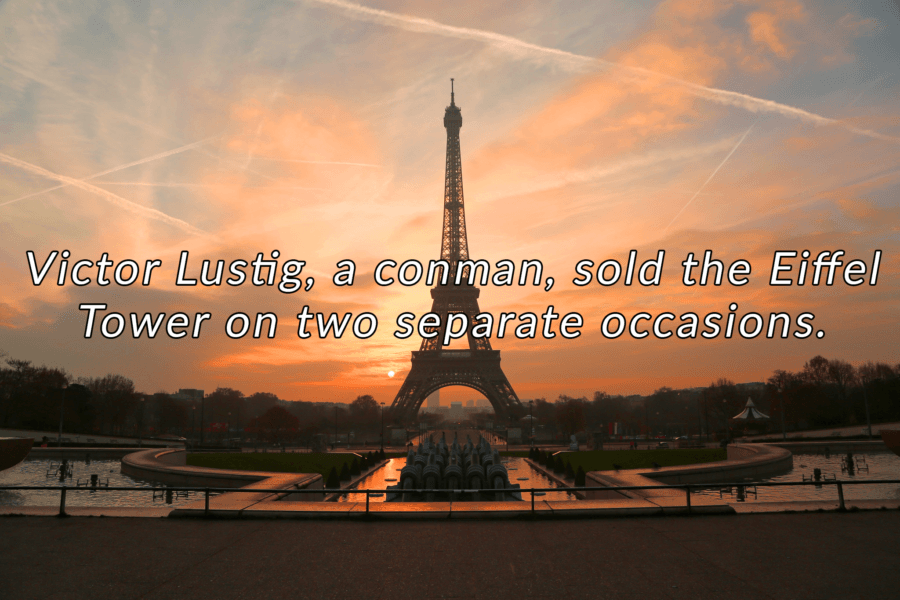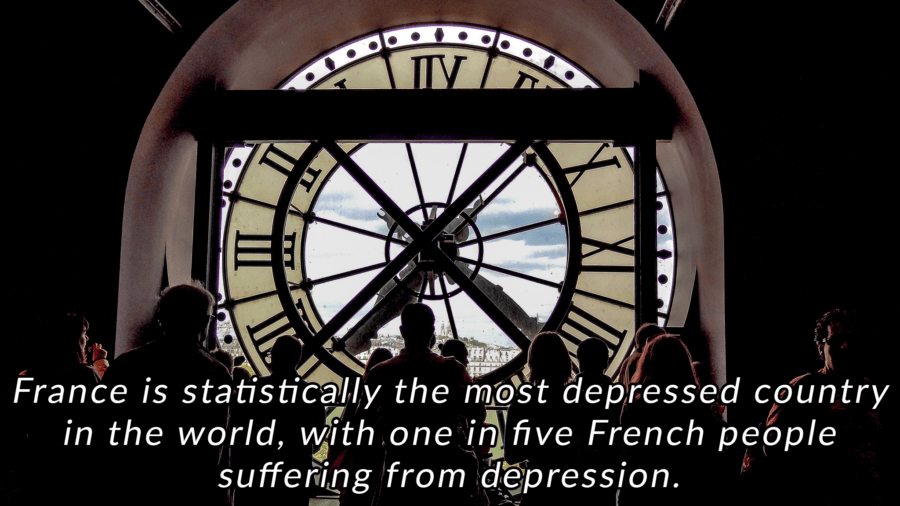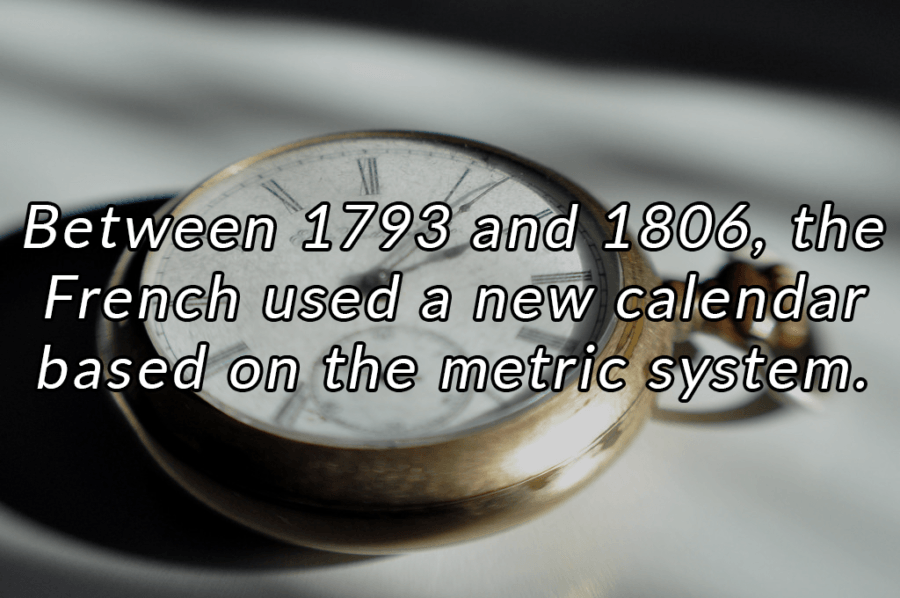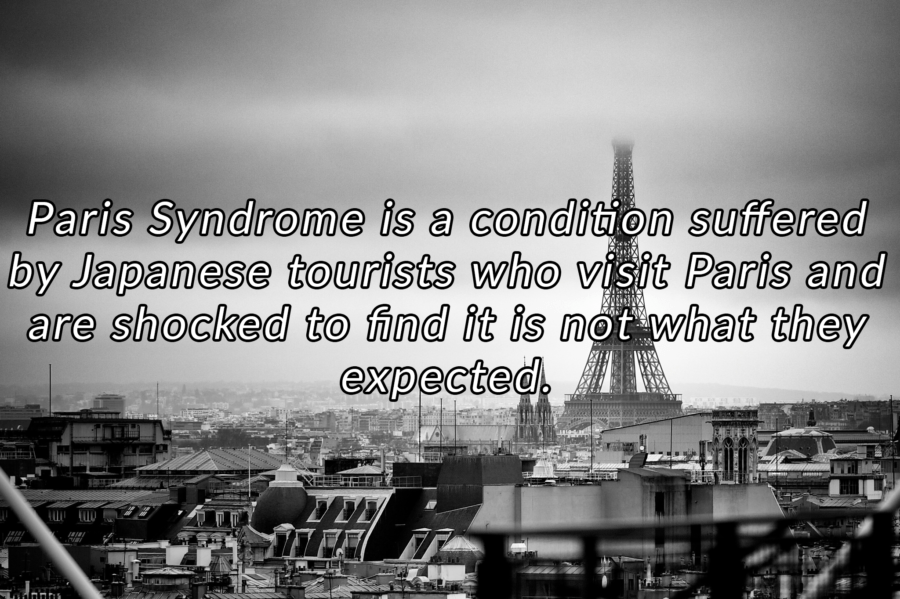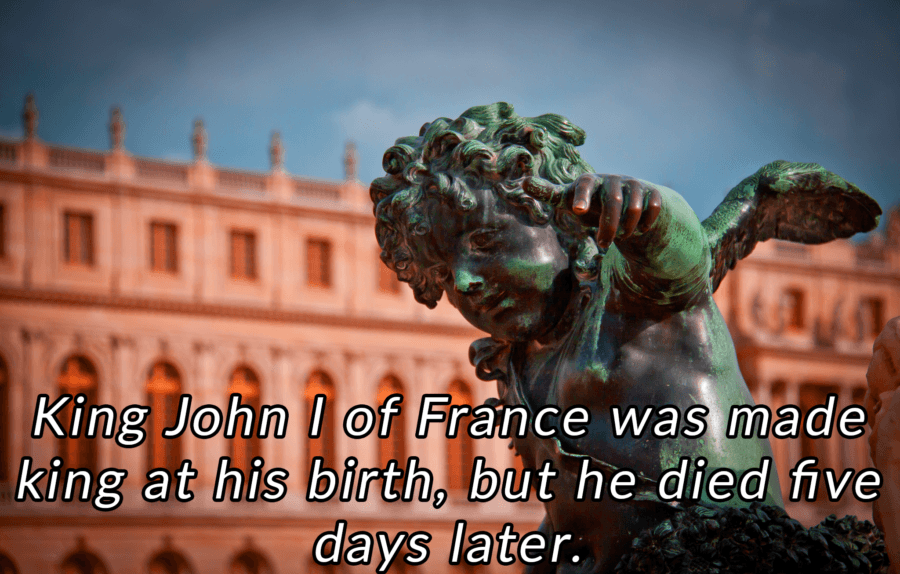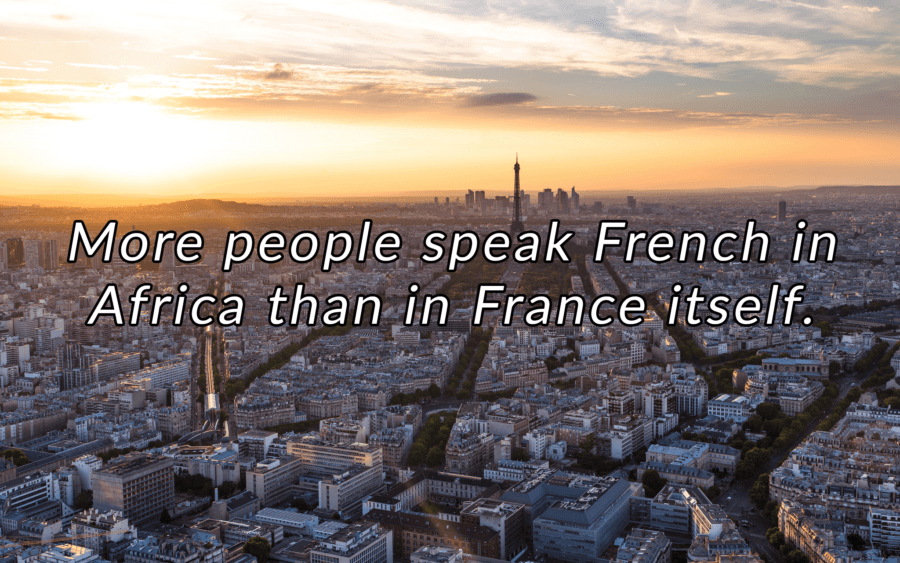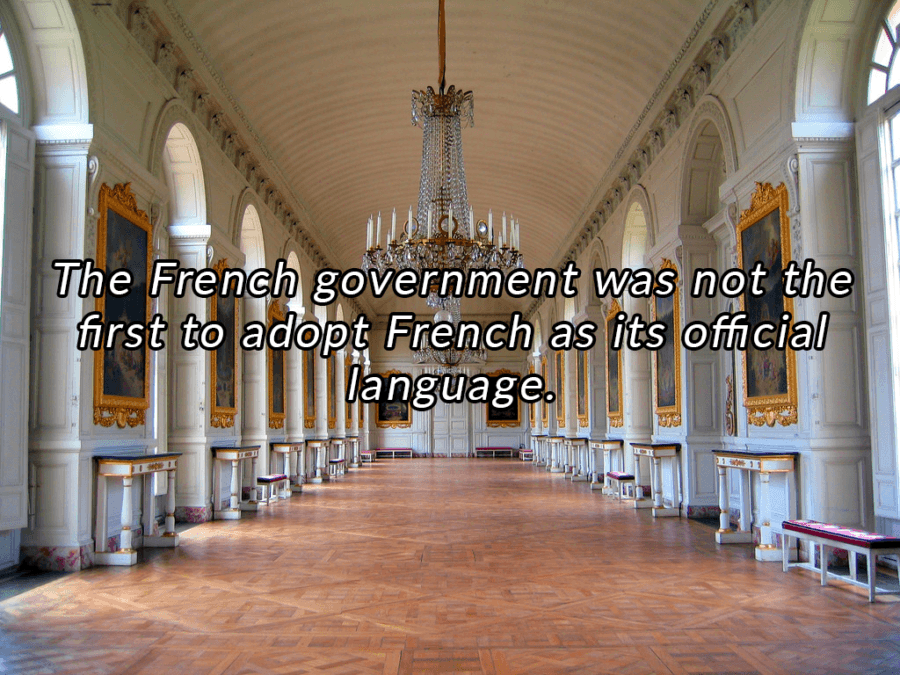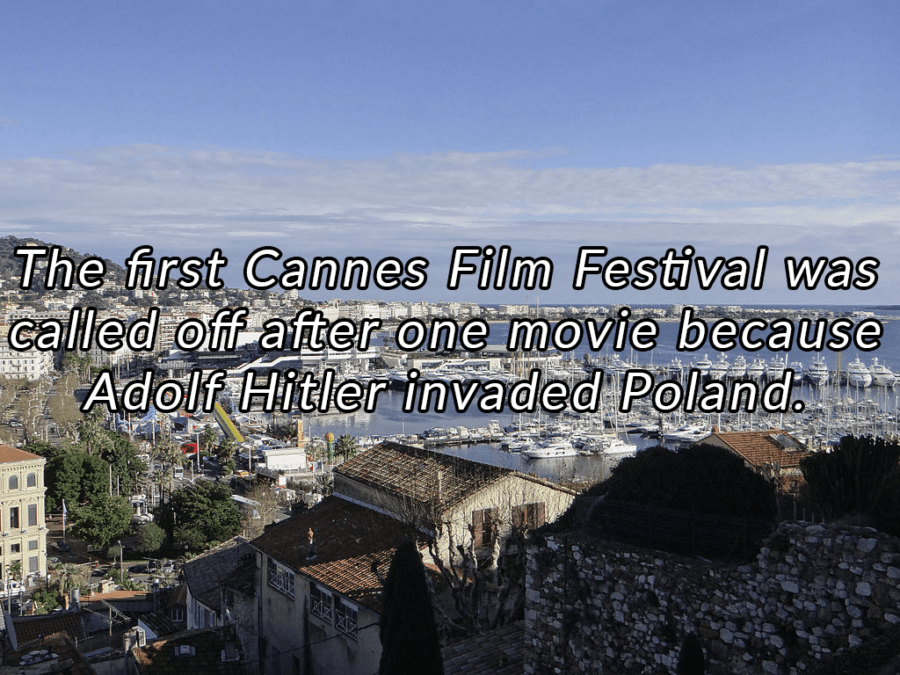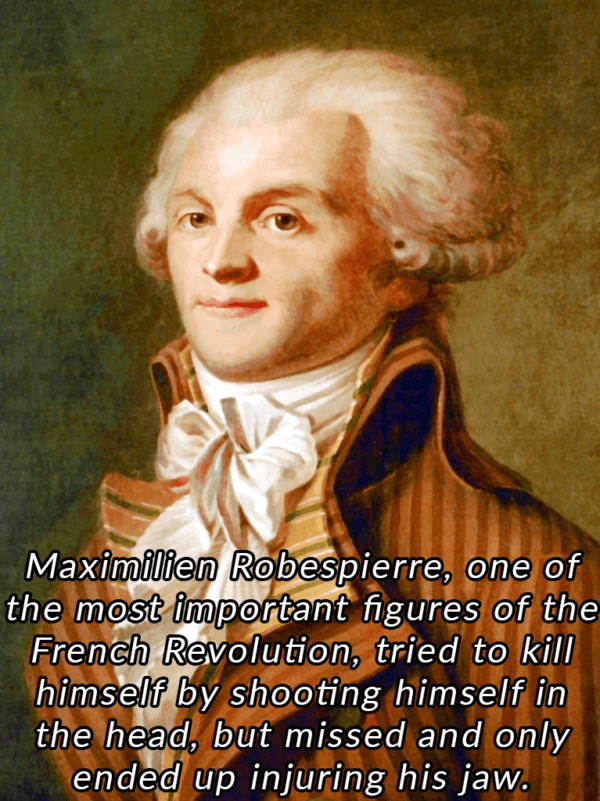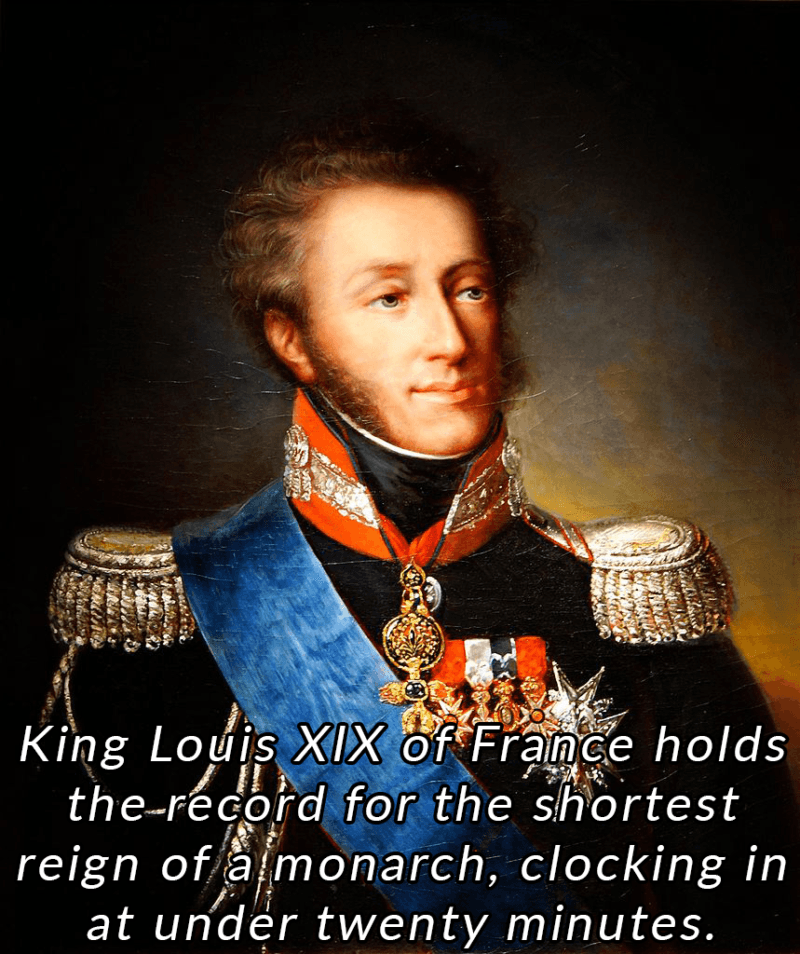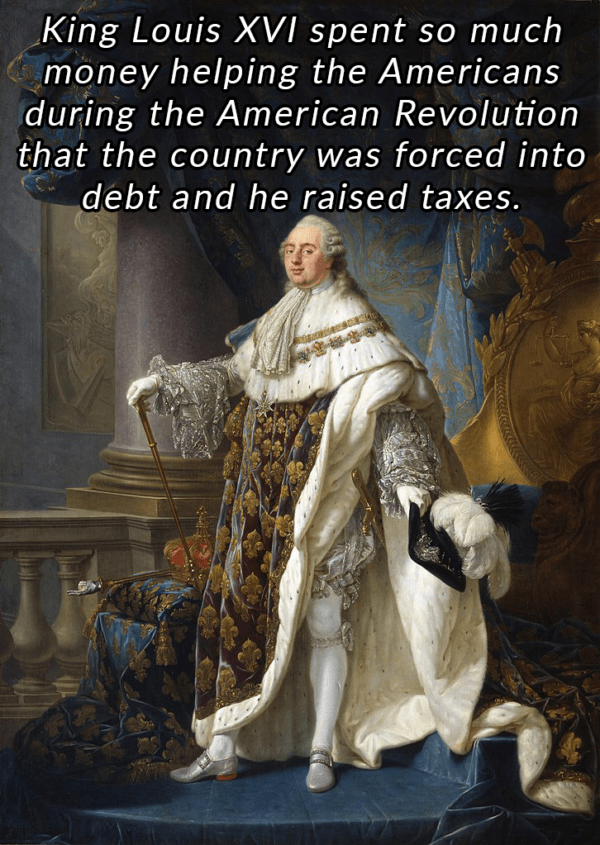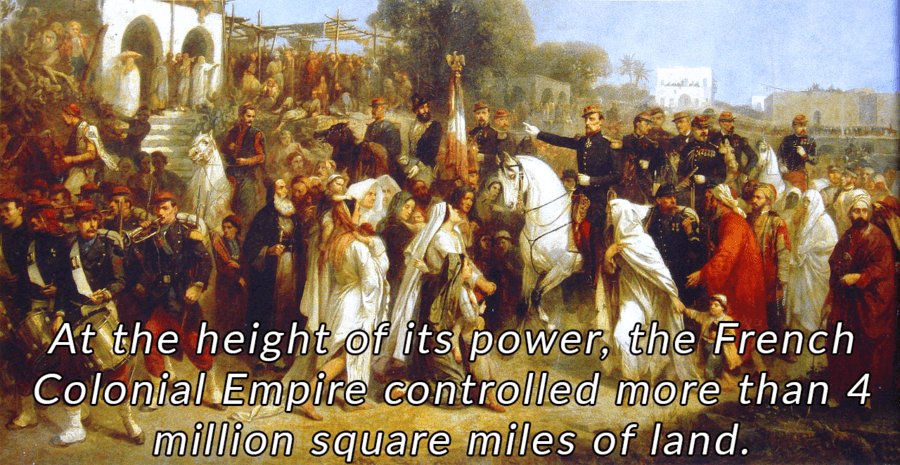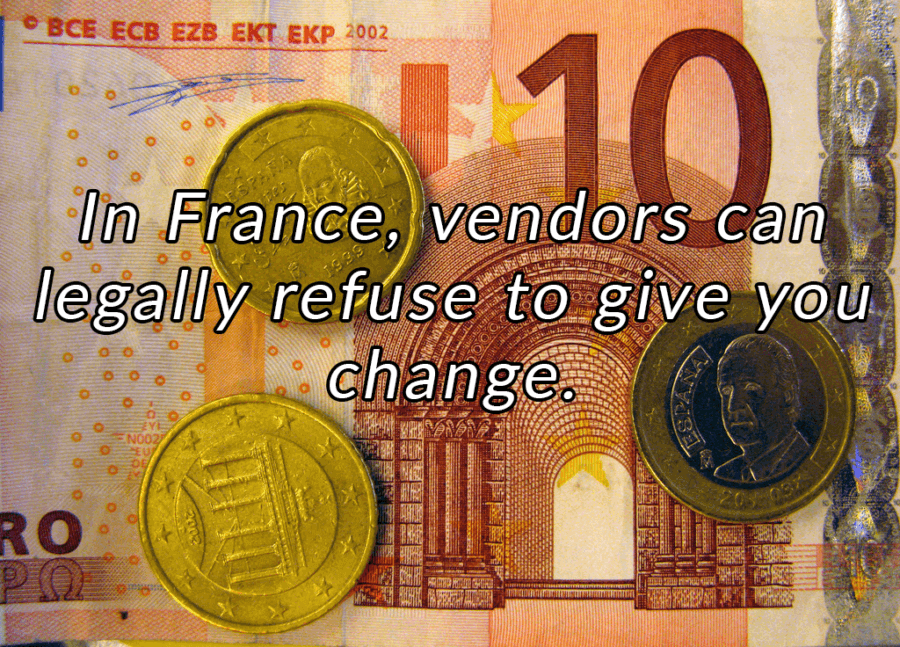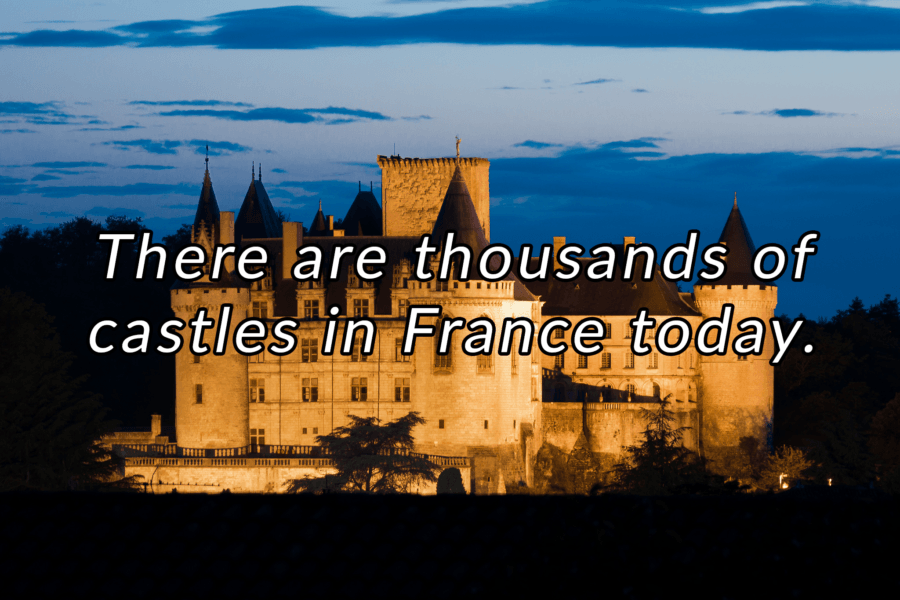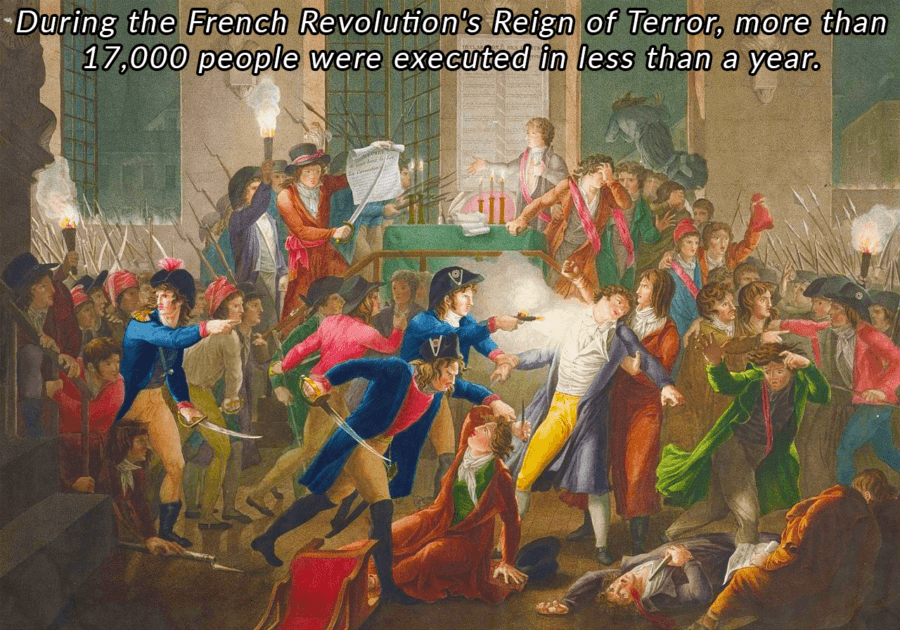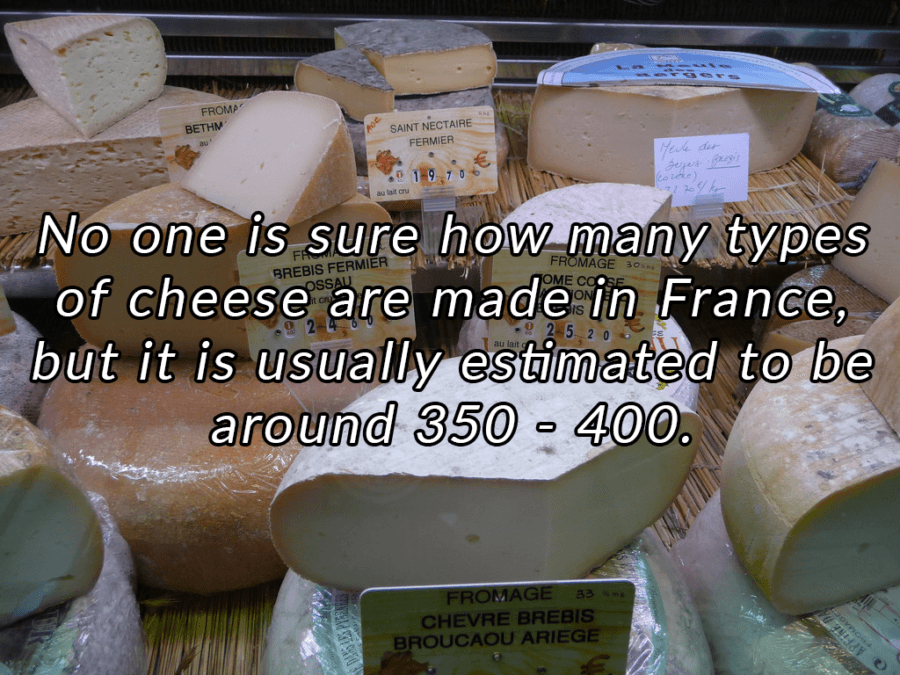From their seemingly unbelievable cheese consumption to their military dominance, these interesting France facts prove there's a lot you don't know about the most visited country on Earth.
In France, you can legally marry a dead person, as long as the President and the Justice Minister approve. The law originated after a 1959 dam collapse killed more than 400 people, including the fiancee of one woman who convinced the government to let her go ahead with the marriage anyway. Hundreds of people have since entered into posthumous marriages.barnyz/Flickr
The French military has one of the best records in Europe. They've won 109 battles, lost 49, and drawn 10 dating back to 387 B.C., according to British historian Niall Ferguson.Wikimedia Commons
The average French person eats around fifty-seven pounds of cheese each year. Almost half of the population eats cheese every single day.eltpics/Flickr
The Catacombs of Paris hold the remains of more than 6 million people. The underground tunnels were established in the late in the late 1700s as a way to relieve the pressure on the city's overcrowded cemeteries.Bert Kaufmann/Flickr
In France, paternity tests are illegal. Unless you have a judge's consent, you cannot test a child's paternity in part because the results may be upsetting for everyone involved.Коля Саныч/Flickr
Potatoes were illegal in France from 1748 to 1772. The ban was instituted because some mistakenly believed potatoes caused leprosy and it was lifted after scientist Antoine-Augustin Parmentier demonstrated that the tuber was safely edible.INRA DIST/Wikimedia Commons
There is a town outside of Paris named La-mort-aux-Juifs — "Death to Jews." The origins of the name are unclear but may date back to Jewish pogroms in the area during the Middle Ages. Either way, local officials rebuffed international pressure to change the name in 2014, saying that there was no need to upset tradition.Robin Chubret/Wikimedia Commons
There are ten different Statues of Liberty in France. These statues large and small have graced a number of French cities for various reasons since the late 1800s.H. Zell/Wikimedia Commons
The Louvre was originally built as a fortress against invaders such as Vikings. From these beginnings in the 13th century onward, it served as a palace until leaders of the French Revolution decided to convert it to a museum in the late 18th century.Nicolas/Flickr
From 1814 to 1830, the French flag was pure white. Following the fall of Napoleon, this period marked the restoration of the Bourbon monarchy, whose color was white.fdecomite/Flickr
Severiano de Heredia was elected mayor of Paris in 1879, making him the first mayor of African descent in the Western World.Kevin Talec/Flickr
There are six municipalities that have mayors, but don't have any inhabitants. These municipalities were destroyed and left uninhabited during World War I, but the mayors still oversee area maintenance.Wikimedia Commons
The French Army still uses carrier pigeons. tablexxnx/Flickr
France and the United Kingdom considered merging into one nation during World War II. The union, meant to strengthen both countries' positions against Nazi Germany, had the support of Winston Churchill and Charles de Gaulle and was mere hours from being finalized when both sides got cold feet and abandoned the plan.Wikimedia Commons
Victor Lustig, a conman, sold the Eiffel Tower on two separate occasions. In the early 20th century, he successfully posed as a government official and convinced metal dealers that the tower was becoming to expensive to maintain and would thus be sold for scrap.Y Nakanishi/Flickr
France is statistically the most depressed country in the world, with one in five French people suffering from depression.Yann Caradec/Flickr
Between 1793 and 1806, the French used a new calendar based on the metric system. Each day was divided into 10 hours, each hour divided into 100 minutes, each minute divided into 100 seconds. Meanwhile, each month was divided into three periods of 10 days each. The calendar was adopted by leaders of the French Revolution in order to remove religious and royalist influence but was done away with when Napoleon became emperor and the first French Republic ended.bitslammer/Flickr
Paris Syndrome is a condition suffered by Japanese tourists who visit Paris and are shocked to find it is not what they expected. The condition, which affects tourists from other countries too, has actually been studied by researchers, who've found that it affects perhaps a few dozen people each year who find that Paris isn't like its depiction in popular media.Aurelien Guichard/Flickr
King John I of France was made king at his birth, but he died five days later. In 1316, he became the youngest person to be recognized as king of France, and the only person to remain king for his entire life. Infant mortality rates were quite high at the time.Chris Goldberg/Flickr
More people speak French in Africa than in France itself. Due to the lingering influence of French colonialism, many countries in central and west Africa have French as their official language.Joe Parks/Flickr
The French government was not the first to adopt French as its official language. The government of Aosta Valley, a region in northwestern Italy, made French their official language in 1536, beating France by three years.Sean Munson/Flickr
In order to combat obesity, France banned free refills at fast food restaurants and shops. Anyone looking for an extra soda was suddenly out of luck._molins/Flickr
The first Cannes Film Festival was called off after one movie because Adolf Hitler invaded Poland.MOSSOT/Wikimedia Commons
The oldest bridge in Paris is the ironically-named Pont Neuf, or New Bridge. It was built from 1578 to 1607.Mathias/Flickr
Maximilien Robespierre, one of the most important figures of the French Revolution, tried to kill himself by shooting himself in the head, but missed and only ended up injuring his jaw. Facing the guillotine amid the power struggles following the revolution, he tried to end his life on his own terms first — and failed (although the details of the account are disputed by historians).Wikimedia Commons
King Louis XIX of France holds the record for the shortest reign of a monarch, clocking in at under twenty minutes. In the midst of overthrowing the government in 1830, revolutionaries forced his father to abdicate, making him king. After about twenty minutes, he too abdicated his newly-inherited throne, ending his reign.Wikimedia Commons
King Louis XVI spent so much money helping the Americans during the American Revolution that the country was forced into debt and he raised taxes. The increase in taxes helped contribute to the French Revolution.Wikimedia Commons
There is a town in France named Y. The inhabitants call themselves Ypsiloniennes. The name comes from the basic "Y" shape formed by the tiny town's three roads.MorBCN/Flickr
At the height of its power, the French Colonial Empire controlled more than 4 million square miles of land. As many as 110 million people, largely in Africa, were under French rule at one time in the early 20th century.Wikimedia Commons
In France, vendors can legally refuse to give you change. Remo-/Flickr
There are thousands of castles in France today.Mark Kenny/Flickr
During the French Revolution's Reign of Terror, more than 17,000 people were executed in less than a year. In 1793-1794, leaders of the newly-instituted French Republic used mass violence to stifle counterrevolution, weed out supposed internal conspirators, and so on.Wikimedia Commons
No one is sure how many types of cheese are made in France, but it is usually estimated to be around 350 - 400.Jennifer/Flickr
Few countries have a history or a culture as rich as France. Over the centuries, the nation has seen more than its fair share of brutal violence and tumult, from Viking invasions in the Middle Ages to the Hundred Years' War to the Reign of Terror and two World Wars.
Amid such upheaval, France has also long been renowned for its culture and art. The country's iconic museums like the Louvre house priceless paintings such as the Mona Lisa while illustrious landmarks like Notre-Dame and the Eiffel Tower are global icons.
It's no surprise then that France welcomes more foreign tourists per year than any other country on Earth. Whether you've ever been one of those tourists yourself or not, it's clear that most of us at least know a little something about France.
But for such a popular country, there's still plenty left for all of us to learn about France. Did you know, for example, that there's a mysterious psychiatric condition known as "Paris Syndrome," that the country actually has a highly impressive military record despite its reputation to the contrary, or that there are millions of dead people buried under the streets of Paris?
Discover more by checking out the interesting France facts in the gallery above.
After checking out these facts about France, discover some of the most fascinating facts about New York. Then, open your mind with this collection of interesting facts about the world.
